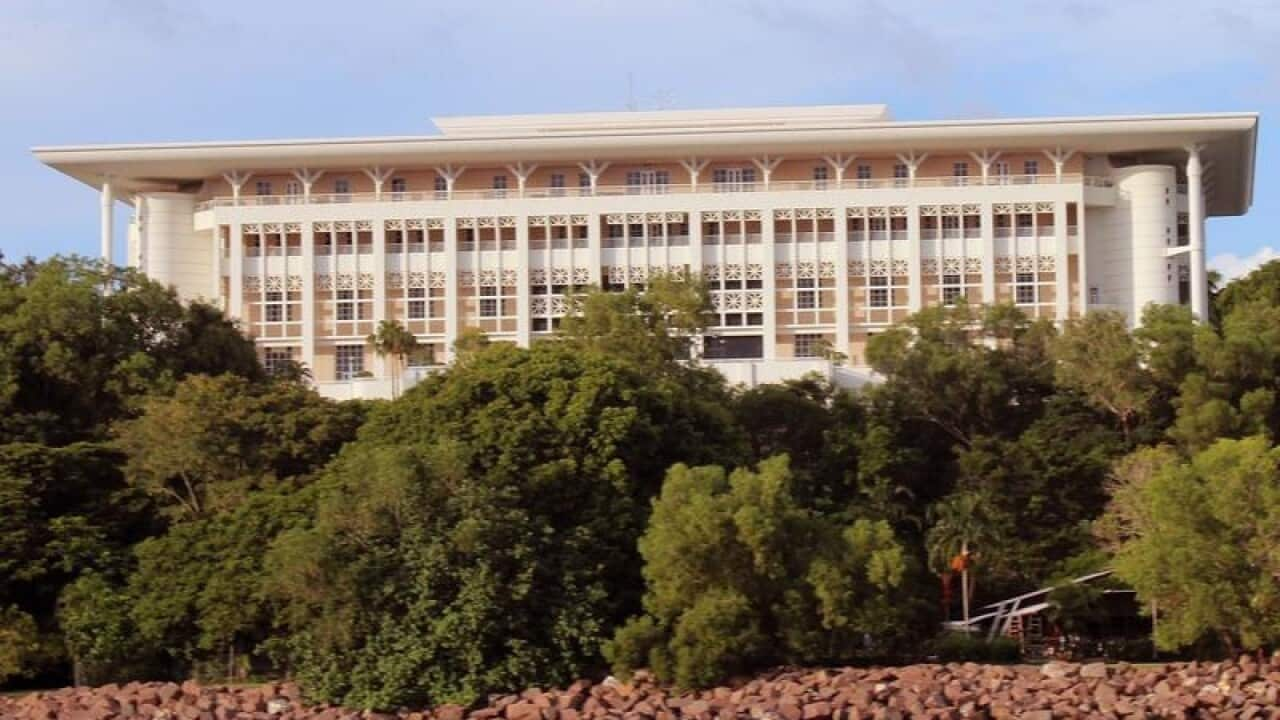The state of the Northern Territory's finances are so dire the government is borrowing money to pay public service wages and interest on its debt.
Unless solutions are found the government will not be able to afford what Treasury forecasts will be an annual $2 billon interest bill by 2029-30.
Net debt will have grown from a current $3 billion to a whopping $35 billion by 2029-30 unless action is taken, according to the Plan for Budget Repair Treasury interim report released on Friday.
That is a massive figure given Western Australia has 10 times the NT's 245,000 population and its current net debt of more than $30 billion is at record levels.
Treasury and the government are still working out how to tackle the crisis, with its budget repair report going out for public comment and help, including to industry and unions.
The report recommends cutting spending growth in the public service from the six per cent-plus it has been for 18 years to three per cent for a decade to avoid debt becoming unmanageable.
The best case scenario is a balanced budget by then, says Treasury.
Health represents more than 20 per cent of the NT's $6 billion-plus budget and its levels of poor health and disadvantage in remote indigenous communities are the highest in the country.
"We are facing some of the biggest fiscal and economic challenges the Territory has ever seen," NT Treasurer Nicole Manison told reporters.
The government would not take a "slash and burn" approach of sacking public servants, she said, which it cannot afford to give that falling population is a factor in the struggling economy and finances.
The report blames a fall in the NT's share of GST revenue of $2.4 billion over the budget cycle coming as "tough economic times" hit, with the wind down of the massive INPEX LNG construction project and increasing demand on government services.
New major projects such as the Sea Dragon prawn farm or Landbridge luxury hotel in Darwin have not started yet.
"There will be some tough decisions that will have to be made, that's why we are having conversations with people to understand how best to go about it," Ms Manison said.
Ms Manison is going to Canberra next week to lobby Federal Treasurer Josh Frydenberg and shadow Treasurer Chris Bowen for a better GST deal for the NT.
"If they (Commonwealth) are dead serious about developing northern Australia to its full potential and want to see better lives for Aboriginal people and close the gap on Aboriginal disadvantage they must be investing in the Northern Territory," she said.
Country Liberal Deputy Opposition Leader Lia Finocchiaro said suggestions the Territory might not be able to afford interest repayments was scary.
"Their own mid-year report said the single biggest reason for the deterioration in the budgetary position is 'policy changes' to the tune of $354 million." Mrs Finocchiaro said.
It was an elected government's job to manage through the down times, spend wisely, invest in wealth creation and to incentivise business and investment, she said.

